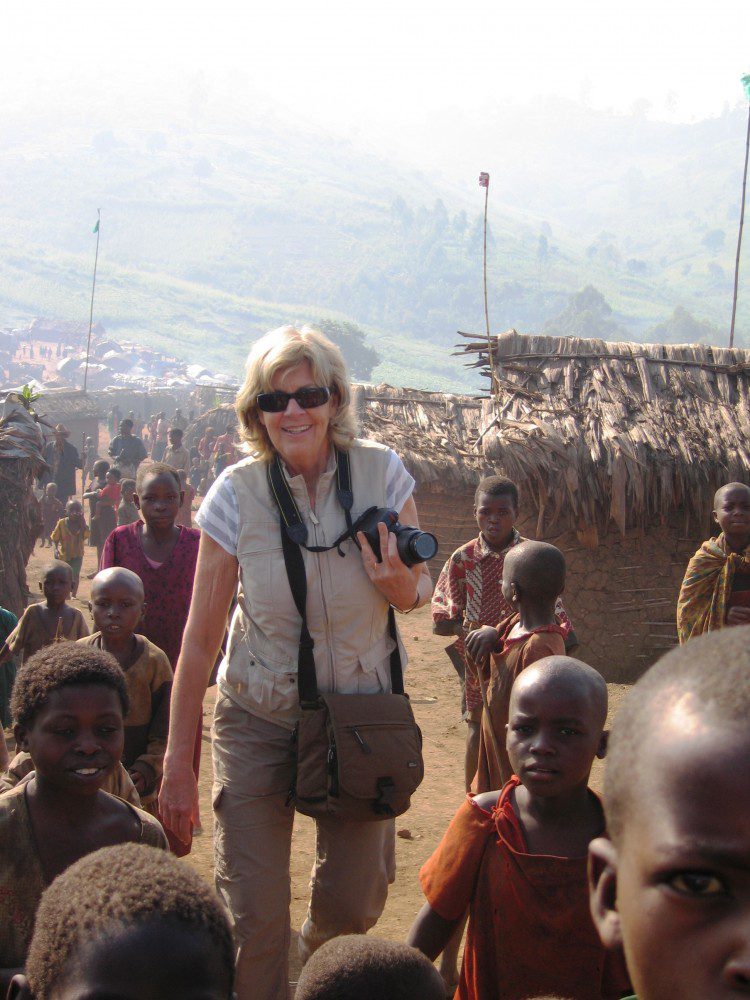Women have been fighting for equal rights for centuries.
Some risk their lives every day when they try to reveal the injustice done to other women in places like the Democratic Republic of Congo, Bosnia and Afghanistan. One of these women is journalist and human rights activist Sally Armstrong.
In 2013, she wrote in her book Ascent of Women that the earth is shifting and change is happening for women.
Two years later, Armstrong still holds this belief. On March 23, she sat down with three journalism students for an interview at Centennial College’s Story Arts Centre in East York.
“The change is here,” said Armstrong, who recently returned from Afghanistan. While there, she was called everything from ‘whore’ to ‘infidel’ to American spy.’ “What we do with the change is going to be the next challenge. We’re not at the finish line.”
On March 19, an Afghan woman named Farkhunda was murdered by a mob of men. She was beaten, thrown over a bridge, burned and then thrown in the river for allegedly burning the Quran, which turned out to be false.
“It’s a horror story, a tragedy, but it’s progress,” Armstrong said. “It captured the people there the way the Jian Ghomeshi story captured the people here.”
Protests happened all over the world in the wake of this incident, especially in Kabul where it triggered unprecedented public outrage. President Ashraf Ghani even called for a special inquiry.
“We tend to look at the country as a failure, but almost nine million kids are back in school,” Armstrong said. “Life expectancy has gone from 42 years to 62 years, and when they had the presidential election, 75 per cent showed up knowing some dopey Taliban could shoot them.”
Armstrong says anyone can help bring about change, no matter who they are are what they do. Actress Emma Watson is one of the people who took a stand last year and helped launch the UN Women campaign HeForShe.
“I don’t care if you bring in Jack the Ripper,” Armstrong said. “If it’s going to bring equality, fairness and justice to women and girls, I don’t care who says it.”
Armstrong believes anyone who sees injustice happen and does nothing about it is guilty. To her, the expression “innocent bystanders” is an oxymoron.
One of the most powerful ways to show what happens to women in developing countries is through photojournalism, she says. Unfortunately, many photos are often not published because the content is too hard for the average reader to look at.
“We always want to cover up what happens to women,” she said, “because we don’t want to address the fact that some men want to hurt women.”
Once when Armstrong was walking down an alleyway in a little village in Bangladesh, she met a young women who had been terribly beaten and burned. She had skin hanging from under her breast because her husband had thrown boiling water at her. Armstrong wanted to show the world what had happened to her by publishing her photo, but her publisher would not let her.
“I think publishing the photo would have made a strong statement about what people do to people, and I think it’s different than publishing a photo of a child who has died from hitting the ground from 17 floors up,” Armstrong said. “My wish was to make a statement about violence. My wish wasn’t to show the horror of a burn.”
Another tool that is very effective is social media, she said. Armstrong believes Facebook and Twitter will do much for women’s rights and help things move faster.
One of the qualities someone must have in order to travel to all these war-torn places is strength. Armstrong has seen many horrible things during her trips, but has always felt grateful for the opportunity.
“I pay people $30 a night to let me stay in their house, tent or mud brick place,” she said. “Even though my coat gets mucked up with the kerosene burner, I’m lucky because I get to see these things happening.”
While all women may not have the level of rights they deserve, every action taken to fight for it is one step closer.
“You’ve taken a hammer to the wall and you’ve made a chip in it,” Armstrong said, “and every time you hit it, you weaken the wall, and ultimately the wall will come down.”

